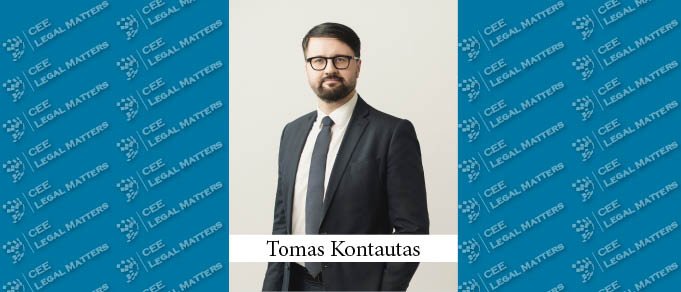Although the coronavirus has effected the Baltics like everyone else, Sorainen Country Managing Partner for Lithuania Tomas Kontautas says, it hasn’t, at least in the short term, resulted in any slow down in work, and he reports that commercial lawyers in Lithuania are “not only busy – but much busier than normal” in the week and a half since the country’s borders were closed on March 16, 2020. “There’s been a lot of activity on hotlines, and lots of questions for law firms,” he reports, “both in contract performance and employment matters, and in many other areas as well.”
Business in Lithuania, Kontautas reports, is adapting to the new reality fairly quickly. “What we are observing in the market is that the immediate shock has passed,” he says. “In the first week there was a substantial amount of heavy thinking about survival strategies and now business is pursuing a more cold-blooded approach.” And, in some areas, more than simple survival is on the table. “Some sectors are actually expanding,” he notes, citing both e-commerce and delivery (from supermarkets in particular, for instance, which used to represent a small fraction of all purchases, but now has a waiting list) as booming.
Kontautas notes that the Banking/Finance sector, which he focuses on along with Insurance, has been put on high alert. “In terms of regulatory,” he says, “it seems like the regulator is relaxing rules, to make it easier for banks to pump money into the economy. And they’re paying a lot of attention to what’s happening at an even higher level, including the possibility to use the European Central Bank’s asset purchase programs to finance affected sectors with liquidity issues, particularly SMEs. This is being watched.”
“Also,” he says, “banks are watching clients, saying, essentially, ‘guys, we know you’re affected, come in and let’s discuss ways to reschedule payments and make this possible.’” According to him, “it’s still premature to say refinancing is on the table, but it will come.” Similarly, he says, “the same is true in the Insurance market – they see that claims may come in a couple months, for instance in financial lines areas such as credit or suretyship insurance, and D&O insurance, as these times require fast and sometimes difficult decisions by directors of many companies.” He strikes a contemplative note: “It will be interesting to observe how the sector will react.”
In terms of the legal market, he says, there are no lay-offs happening as yet. His own firm, it appears, is ready for whatever comes. “At Sorainen we have had several board meetings with partners from Lithuania, Latvia, Estonia, and Belarus, ” he reports. “We checked, and we have quite good liquidity, but of course we need to have a good strategy for financial discipline.” Still, it’s a not all about frugality. “We’re even investing, when it comes to the tools we need to continue to operate and further improve our systems and business processes to work in this crisis, such as remote communication and work management tools.”
And he notes that, while Sorainen’s lawyers are working from home like everyone else in professional services, the firm’s office remains open and operated by a skeleton crew for necessary and unavoidable client meetings, copying, and paper-based correspondence.
Kontautas credits the firm’s IT and other business services teams for helping Sorainen adapt to the crisis in an orderly fashion, Kontautas reports. “A day before the quarantine was announced there was a governmental meeting explaining what was likely, and we mobilized the legal staff and created a special task force led by a corporate partner and a few capable senior associates from each practice group. The task force prepared advice to clients about the aspects of this crisis that would be most important for them, and coordinated various work streams in different practice groups.” He emphasizes the need “provide a certain coherence, so that we don’t have different recommendations or communications made from different lawyers for clients facing similar issues in different sectors.”
Finally, Kontautas is asked for his personal perspective on the crisis. “We are dealing with elements which are unknown, so I don’t want to go into panic-based scenarios and speculations. We have things that are known, we have various situations on the table – our clients do – they have to be helped with. The ultimate result, of course, will depend on when the crisis is over and when things will calm down. Personally, I think it will be several months – but it will require global coordination.”

















